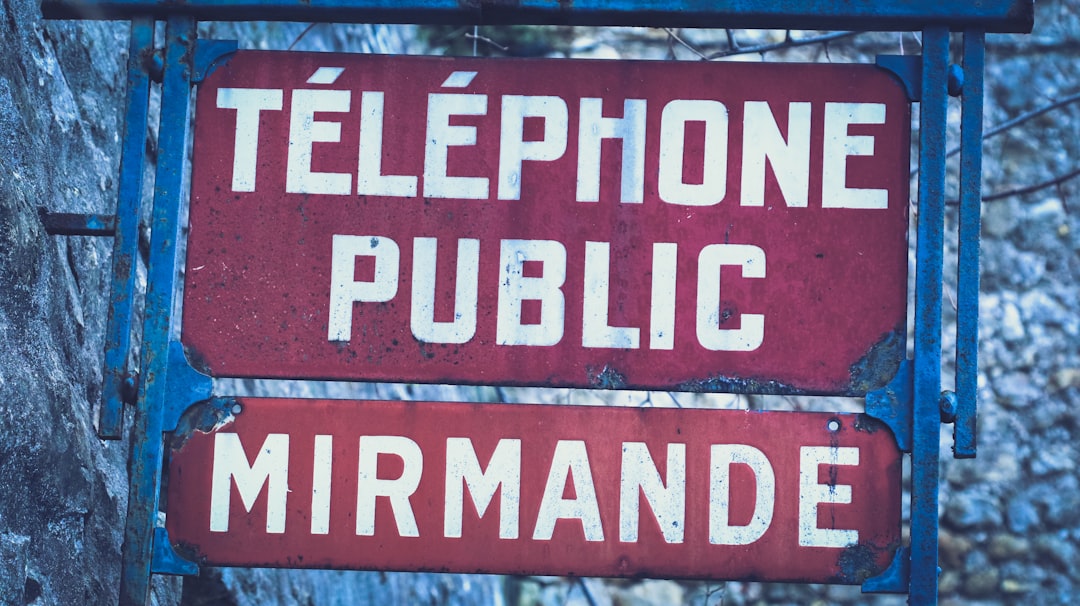Robocalls and spam calls are a growing problem in Wisconsin, but state laws like the Do Not Call Law offer protection. Residents can register on the Do Not Call list and seek help from specialized robocall lawyers or spam call law firms to block unwanted automated messages and take legal action against persistent violators. These experts guide clients through their rights under robocall and spam call laws, offering tailored solutions for a quieter home environment.
Tired of intrusive robocalls flooding your Wisconsin landline? You’re not alone. Understanding your rights and available tools is crucial to reclaiming control. This guide breaks down the legal framework surrounding robocalls in Wisconsin, empowering you with knowledge. Learn about the specific rights granted to landline owners, effective do-not-call measures, and explore options like hiring a robocall lawyer Wisconsin or engaging a spam call law firm Wisconsin for aggressive legal recourse against unwanted calls. Take back your phone lines today!
Understanding Robocalls and Wisconsin Law

Robocalls, or automated telephone calls, have become a widespread nuisance, with many Wisconsin residents receiving unwanted calls from telemarketers and scammers daily. These automated messages, often promoting products or services, can be frustrating and even dangerous. In response to this growing issue, both federal and state laws have been implemented to protect consumers.
Wisconsin’s Do Not Call Law is designed to curb robocalls and provide some respite for residents. The law restricts telemarketers from calling Wisconsin homes without prior consent. Additionally, it gives individuals the right to register their phone numbers on a Do Not Call list, further limiting unsolicited calls. For those facing persistent or malicious robocalls, consulting with a robocall Attorney Wisconsin or a Spam Call law firm Wisconsin specializing in telecommunications law is advisable. These legal professionals can guide residents through their rights and available options, ensuring that the state’s robocall Laws Wisconsin are enforced to protect against unwanted calls.
Rights of Landline Owners in Wisconsin

In Wisconsin, landline owners have certain rights when it comes to managing unwanted robocalls and spam calls. The state has implemented laws to protect residents from excessive and annoying telephone solicitations. According to Wisconsin’s Do Not Call Law, businesses are prohibited from making automated or prerecorded phone calls to residential telephone numbers without the prior express consent of the caller. This means that if you have registered your landline with a “Do Not Call” list or have not given permission for robocalls, such calls are illegal.
If you’re experiencing a constant influx of unwanted robocalls, consulting a robocall lawyer Wisconsin or a spam call law firm Wisconsin can be beneficial. These legal professionals specialize in navigating the state’s robocall laws Wisconsin and can help you understand your rights and options for legal recourse. They can also assist in blocking future calls from persistent spammers, ensuring peace of mind and a more tranquil home environment.
Steps to Block Robocalls on Your Wisconsin Landline

Blocking robocalls on your Wisconsin landline can be a multi-step process, but it’s manageable with the right approach. First, review your phone company’s built-in call blocking features. Many landline providers offer basic filtering options that can automatically block certain types of calls, including known spam and telemarketing numbers. Check your account settings or contact your service provider for details on how to enable these protections.
For more comprehensive protection against robocalls, consider enrolling in a Do Not Call program through the Wisconsin Department of Agriculture, Trade, and Consumer Protection. This state-level initiative helps block unwanted calls from telemarketers and other solicitors. Additionally, consult with a robocall lawyer or attorney in Wisconsin who specializes in spam call laws to explore legal options and ensure you’re fully protected under the state’s regulations.
Legal Options Against Spam Calls in Wisconsin

In Wisconsin, there are robust legal options available to combat robocalls and spam calls. The state has implemented strict laws and regulations to protect residents from unwanted telephone marketing practices. According to the Do Not Call Law in Wisconsin, businesses and organizations are prohibited from making automated or prerecorded phone calls to residential numbers unless consent is obtained first. This law also allows individuals to register their landlines with the National Do Not Call Registry, further restricting robocalls.
If you’re facing a barrage of unwanted robocalls, consulting a robocall lawyer in Wisconsin or a spam call law firm can be beneficial. These legal experts are well-versed in navigating the state’s robocall laws and can help you understand your rights. A robocall attorney in Wisconsin can take necessary actions, including sending cease and desist letters, filing complaints with relevant authorities, or even pursuing legal action against persistent violators, ensuring that your phone lines remain free from nuisance calls.
Engaging a Robocall Lawyer in Wisconsin for Effective Solutions

If you’re overwhelmed by persistent robocalls on your Wisconsin landline, consider reaching out to a robocall lawyer in Wisconsin for specialized assistance. These legal experts are well-versed in the state’s robocall laws and can offer tailored solutions to mitigate unwanted calls. Many spam call law firms in Wisconsin focus on representing clients plagued by nuisance phone calls, empowering them to take legal action against persistent robocallers.
Engaging a robocall attorney Wisconsin is particularly beneficial when dealing with complex cases or when you’ve exhausted other blocking methods. They can guide you through the legal framework surrounding do not call laws in Wisconsin and help you understand your rights. Additionally, these lawyers can negotiate with call centers on your behalf or represent you in court if necessary, ensuring that your rights are protected and unwanted robocalls are effectively stopped.






